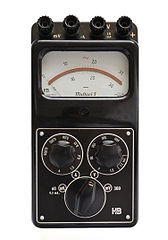
When driving an electric car, a common question is “How long does it take to charge?”. This is actually a difficult question to answer simply. When charging an EV, the time it takes to go from the current state of charge to fully charged is dependent on many things such as:
- The starting state of charge
- The capacity of the car’s battery
- The Voltage and Current of the charging supply
- The capability of the car’s charging equipment
It is also important to recognise that probably 90% of all electric car charging is done at the owner’s home, overnight, while the driver is asleep. In those circumstances, it doesn’t actually matter how long it took to charge, so long as when the car is started up in the morning for the driver to travel somewhere, it is fully charged and ready to go.
Factors That Affect Charging Time
There are a number of factors that determine charging speed but assuming that there are no other limiting factors this is the miles per hour of charging you are likely to see at the following rates:
Voltage Current or Power Miles added/Hour Typical Time from Empty to Full For Nissan Leaf Mk1 Typical Time from Empty to Full For Nissan Leaf Mk2
- 230V 13A (Home mains socket) 10 miles/hr 11 hrs 11 hrs
- 230V 16A (typical home pod) 15 miles/hr 7 hrs 7 hrs
- 230V 32A
- (32A home pod or public post) 30 miles/hr 7 hrs 4 hrs
- 230V 3-phase 43kW (AC Rapid Charging) 80 miles/30 mins
- 400V DC 50kW (CHAdeMO) 80 miles/30 mins 1 hr 1 hr
The Starting State of Charge

Even with the current range of electric cars, that can travel between 60 and 200 miles on a single charge, on most days the car travels less than that distance and so at the next charge, it is not empty. So charge time will be less depending on how much charge there is already in the battery. This state of charge is measured in kWh but few cars have a read-out of this, showing instead a percentage state of charge or a number of bars or some other indication. So if you know the total capacity of the battery in kWh then you can estimate the KwH remaining.
The Capacity of the Car’s Battery
A battery stores a certain number of Kilowatt Hours (kWh). Each make and model of car holds a different number of kWh. In order to calculate how long a charge might take, it is necessary to know this figure.
The Voltage and Current of the Charging Supply

So, once you have an estimate of how many kWh of electricity you need to fully charge your car, you can now work out how long it will take, given the electric charger at your disposal. These calculations are only estimates however, because the car does not charge at a constant rate. The rate varies depending of state of charge among other things.
Examples
If the charger is delivering 230V at 10A (eg a household socket), then it will deliver 2.3kW. So over 1 hour, it would give the car 2.3kWh. So if you need 20kWh to fully charge the battery, it will take 20/2.3= 8.7 hours.
If the charger is delivering 240V at 16A (eg a home charging unit), then it will deliver 3.6kW. So over 1 hour, it would give the car 3.6kWh. So if you need 20 kWh to fully charge the battery, it will take 20/3.6= 5.5 hours.
If the charger is a CHAdeMO it delivers 50kW. So over 1 hour, it would give the car 50kWh. So if you need 20kWh to fully charge the battery, it will take 20/50= 24 mins.
These examples assume a constant rate charge. In practice the charge rate is reduced as the battery charges up and so actual charge times will be longer.
The Capability of the Car’s Charging Equipment
Most models have a range of voltages and currents that they can use to charge. Obviously if the car cannot accept a certain voltage or current then even connecting to a supply capable of delivering that voltage/current, the car will limit what it accepts to the car’s specification. This is the function of the EVSE (Electric Vehicle Supply Equipment)
